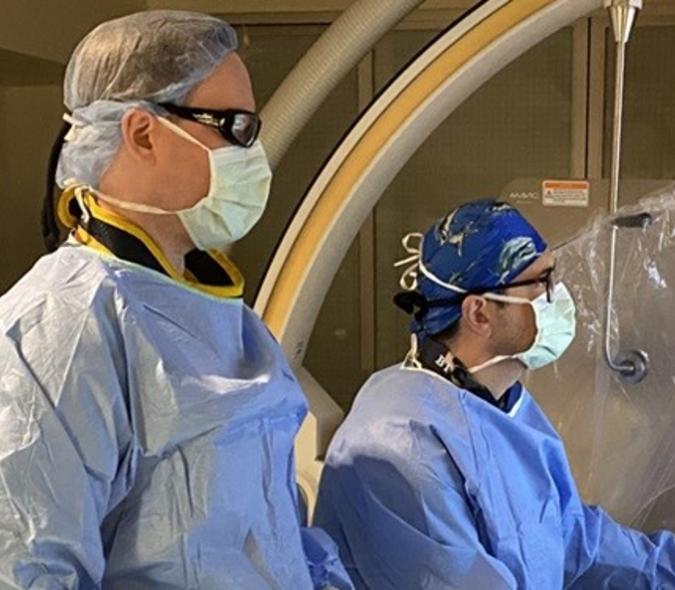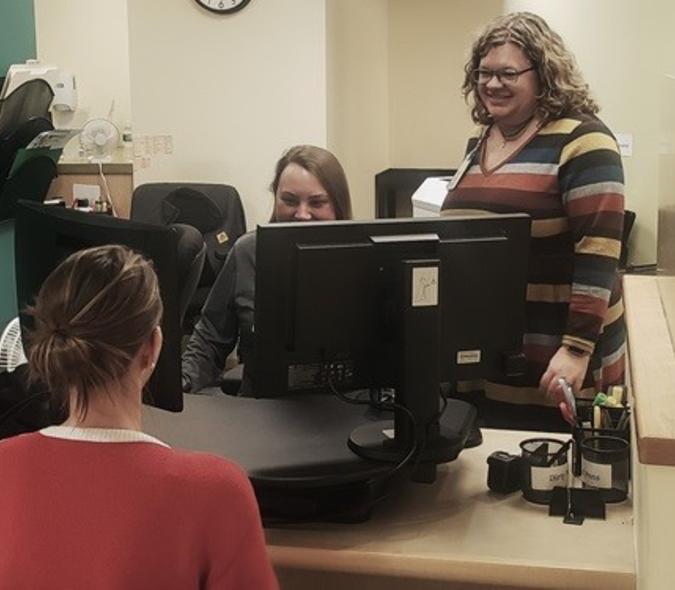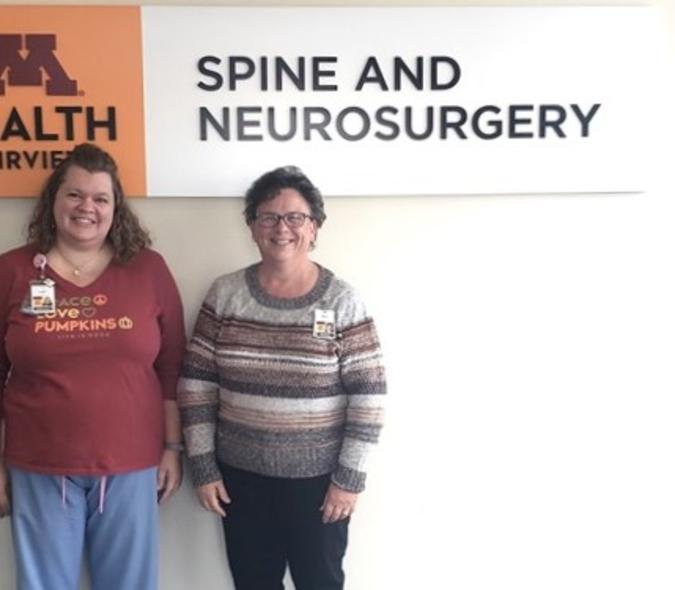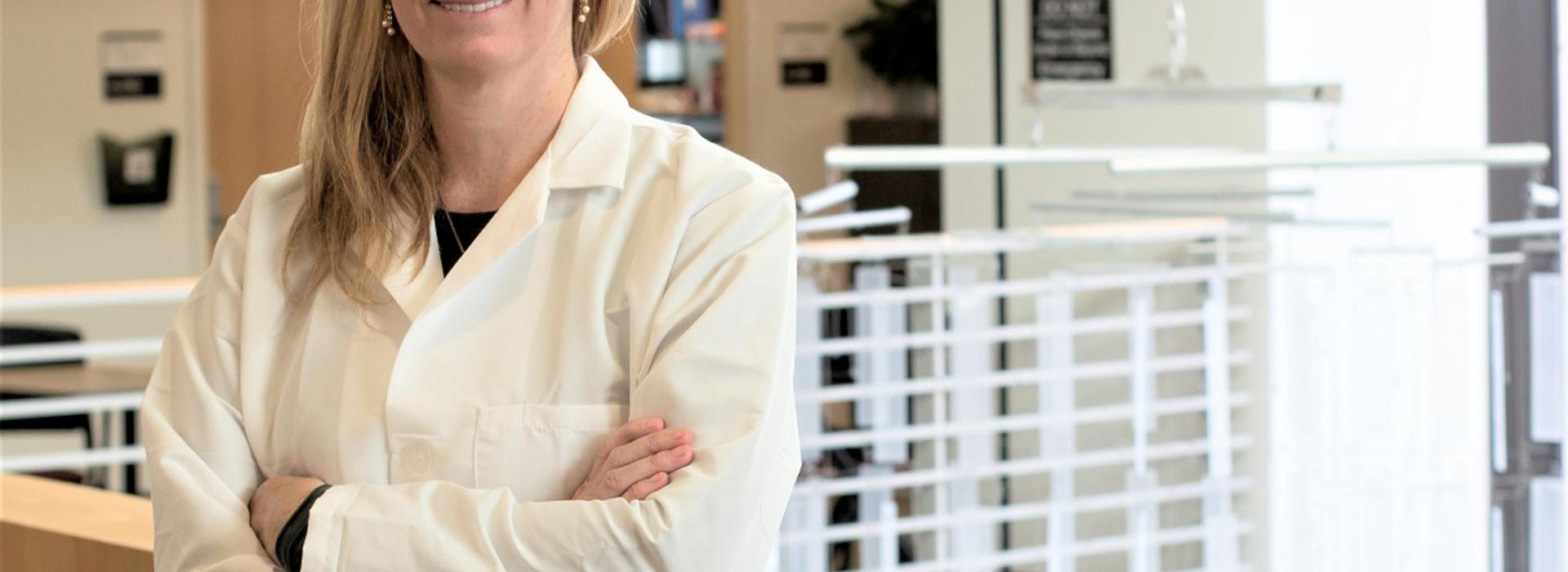
Substantial NIH grant enables faculty member to continue innovative spinal cord injury work
Associate Professor Ann Parr, MD, PhD, was recently notified that she had been awarded a National Institutes of Health (NIH) RO1 Award. According to the NIH, this type of grant is made to support a discrete, specified, circumscribed project to be performed by the named investigator in an area representing the investigator's specific interest and competencies. It is one of the most sought-after grants from the agency.
“It’s an arduous process to apply for an RO1,” said Dr. Parr. “Getting the award validates the direction of your research because you need to provide significant preliminary data. It means that your work is believable and promising.”
Dr. Parr, who serves as Principal Investigator on the grant with Co-investigator Michael McAlpine, PhD, the Kuhrmeyer Family Chair Professor of Mechanical Engineering at the U, will use the five-year award to continue the groundbreaking research her lab is doing in spinal cord injury repair. It will enable them to build on their work creating scaffolds embedded with transplanted stem cells.
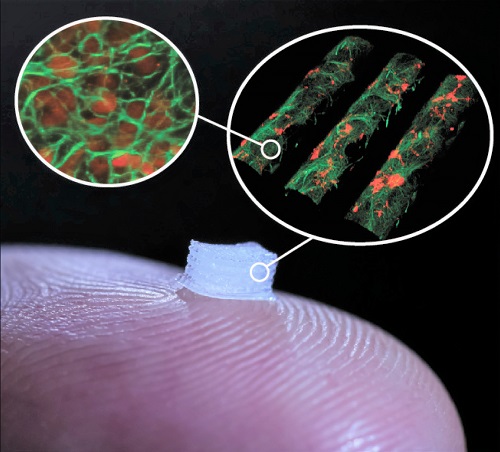
The scaffolds (as pictured here) are tiny 3D-printed guides made of silicone that serve as a platform for the specialized cells that are then 3D printed on top of them. “The guide would be surgically implanted into the injured area of the spinal cord where it would serve as a type of ‘relay’ between living nerve cells above and below the area of injury,” Dr. Parr explained. “The hope is that making the reconnection would help patients regain some functions such as control of muscles, bowel, and bladder.” The work is being done both in vitro and in an animal model.
There have been several other benefits to winning the award. “I’m being asked to be part of different scientific groups,” said Dr. Parr. “I already review papers for NIH and am getting all kinds of other requests.”
Winning the RO1 also means that Dr. Parr has been named Vice Chair of Research for the Neurosurgery Department. In this new role, she will help formulate the research structure and plan for the department and help manage its research activities. In addition, Dr. Parr will mentor other faculty members to help them reach their research goals and get papers written and support the research efforts of department residents and medical students.
Dr. Parr also sees patients who have spinal issues that respond well to surgery. Her time is split 50-50 between clinical and research activities.
